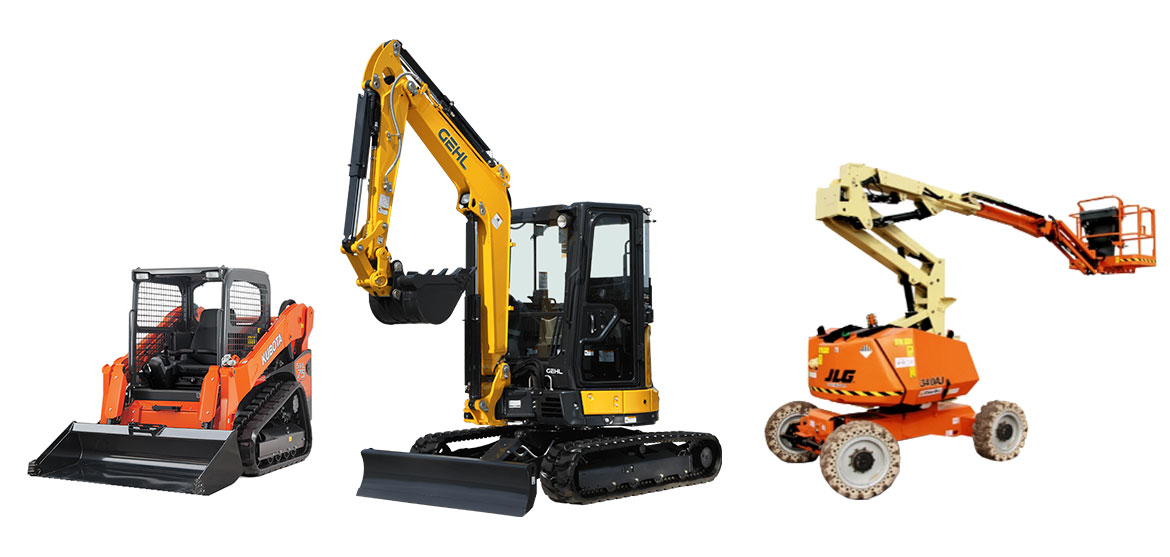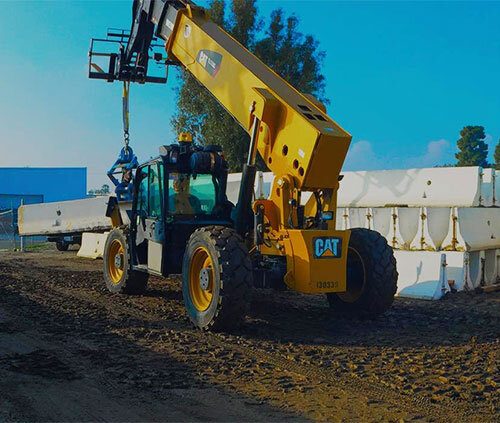Exactly How to Select the Right Building Devices Rentals to Satisfy Your Specific Demands
Picking the ideal building equipment rentals is a crucial action that can substantially influence task performance and success. It needs a methodical analysis of project requirements, tools capabilities, rental terms, and logistical factors to consider. Each variable plays a critical duty in making certain that the preferred equipment aligns with details tasks and site conditions. However, the nuances of these examinations can frequently be forgotten, leading to possible difficulties. Comprehending how to browse this procedure effectively may be the trick to maximizing resources and decreasing prices-- yet numerous service providers locate themselves at a crossroads when making these vital decisions.
Examine Your Job Requirements
Prior to choosing building and construction tools rentals, it is essential to completely assess your task demands to make certain that the right tools are utilized for ideal effectiveness and security. Begin by defining the extent of your job, consisting of the tasks to be finished and the timeline for conclusion. This foundational understanding will certainly direct you in identifying the particular tools required.
Following, take into consideration the site conditions, such as terrain, availability, and the area readily available for navigating machinery. These elements directly affect the kind and dimension of tools that can be properly utilized. Furthermore, examine the awaited work and production rates, as these metrics will certainly determine the devices's capability requirements.
It is additionally crucial to assess any type of regulatory or safety and security standards that may use to your job. Conformity with these laws can affect equipment choice and use, affecting general task timelines and costs. Finally, seek advice from your project team and stakeholders to collect insights and consensus on tools demands. By very carefully thinking about these elements, you can make informed decisions that not just boost functional performance but likewise advertise a risk-free workplace.
Evaluate Devices Abilities
Exactly how do you establish whether the devices fulfills your job's needs? Begin by evaluating the particular tasks required for your task and match these with the capacities of the tools offered for rent. Think about the equipment's size, power, and capability, as well as its operational functions. For example, if you need to raise hefty materials, guarantee the lifting capacity of the devices lines up with your requirements.

Finally, consider the most recent technological advancements that might enhance productivity. Attributes such as GPS tracking, gas performance, and operator-friendly controls can substantially impact job implementation. By thoroughly examining devices capacities against your job specifications, you can guarantee that you pick the best machinery that not only fulfills however exceeds your operational see demands, eventually contributing to the success of your building and construction project.
Understand Rental Terms
Recognizing rental terms is crucial for making certain a effective and smooth equipment rental experience. Familiarizing on your own with the certain terms of a rental contract can stop misconceptions and prospective conflicts. Key components to take into consideration consist of the duration of the leasing, repayment terms, and any type of involved fees.
Normally, rental durations are specified in everyday, once a week, or monthly terms, and comprehending these durations is essential for budgeting. In addition, payment terms might differ between business, including deposits, late payment penalties, and approved repayment approaches.
It's also vital to make clear duties for upkeep and damages. Some rental contracts may stipulate that the tenant is accountable for routine upkeep and any repair work that happen during the rental period. Recognizing the problems regarding damage or theft is important; ask about insurance coverage options and obligation coverage to secure your passions.
Think About Transport Logistics
Transportation logistics play an essential duty in the successful rental of building and construction equipment. Correct preparation and implementation of transportation techniques can considerably impact the efficiency and performance of your building and construction job. Before finalizing devices rentals, evaluate the area of your job site and the availability of transportation courses.
Consider the distance in between the rental supplier and your website, as longer ranges can cause enhanced transportation costs and hold-ups - equipment rental company. Evaluate the weight go and dimensions of the equipment to guarantee it can be securely carried on readily available roads and framework

Bear in mind local guidelines regarding transportation permits and paths, as these can affect the logistics of moving hefty machinery (aerial lift rental). By proactively attending to these considerations, you can decrease prospective disturbances and ensure that the right devices is delivered in a timely manner, fostering a more reliable construction process
Compare Rental Costs and Suppliers
When reviewing building and construction devices services, it is necessary to compare costs and suppliers to guarantee you protect the ideal worth for your job. Beginning by gathering quotes from numerous rental companies to develop a baseline for prices. Know that expenses can vary dramatically based on factors such as equipment kind, rental duration, and added services used.
Next, consider the track record and dependability of each copyright. Try to find client evaluations and reviews to assess their solution top quality. A business with a solid record might validate a greater rental price because of remarkable devices maintenance and customer support.
Furthermore, assess the regards to the rental contracts. Some companies might supply adaptable rental alternatives, such as day-to-day, regular, or regular sites monthly rates, which can be advantageous relying on your job timeline. Pay attention to additional fees, such as shipment fees and insurance prices, which can impact the general rental rate.
Verdict

Choosing the proper construction devices leasings is an essential step that can substantially affect job performance and success.Before picking building tools leasings, it is crucial to thoroughly examine your job needs to make certain that the right devices are used for ideal performance and security.Comprehending rental terms is important for guaranteeing a smooth and effective devices rental experience.When assessing building and construction equipment services, it is important to contrast prices and providers to guarantee you safeguard the finest worth for your task.Selecting the suitable building devices services demands a thorough analysis of task demands, tools abilities, rental terms, transport logistics, and relative costs.